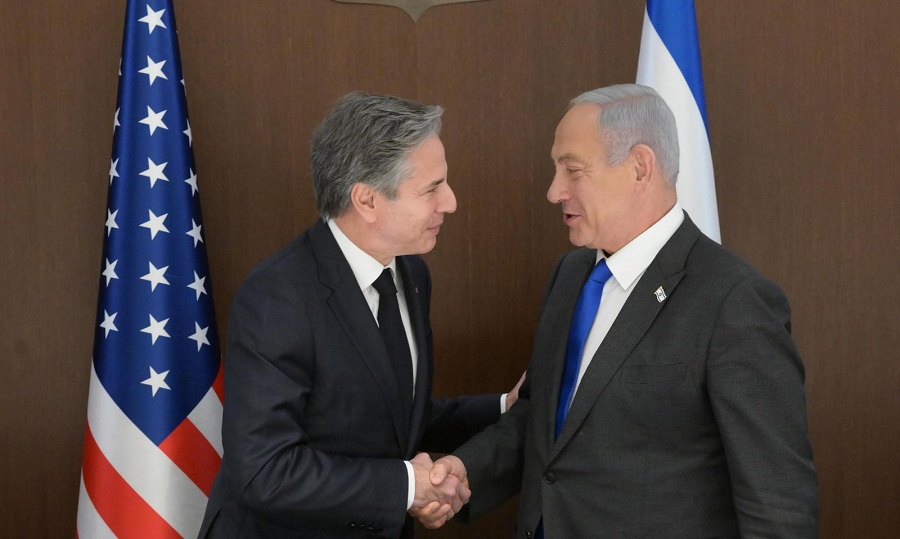Blinken’s Middle East Visit Aims to Build Support for Gaza Peace Deal
In a critical diplomatic effort, US Secretary of State Antony Blinken has visited Cairo and Jerusalem to garner regional support for a proposed Gaza peace deal unveiled by President Joe Biden. The visit marks Blinken’s eighth trip to the Middle East since the conflict in Gaza began.
During his meetings with regional leaders, including Israeli Prime Minister Benjamin Netanyahu, Blinken emphasized the importance of a ceasefire and a post-conflict plan for Gaza. He conveyed a clear message: “If you want a ceasefire, press Hamas to say, yes.”
Blinken’s Message: “He reiterated that the proposal on the table would unlock the possibility of calm along Israel’s northern border and further integration with countries in the region,” according to a State Department readout.
Prime Minister Netanyahu has not yet endorsed the US proposal, insisting that any deal must ensure the dismantling of Hamas’s military and governing capabilities and the release of all hostages.
Netanyahu’s Position: Netanyahu’s resistance stems from a desire to prevent the conflict from spreading and to secure Israel’s borders effectively.
Amid ongoing negotiations, Israel’s forces, supported by air strikes, recently freed four captives after intense clashes with Hamas in the Nuseirat refugee camp. The Hamas-run health ministry in Gaza reported 274 fatalities from the raid, including children and civilians, while Israel claimed fewer than 100 deaths.
Blinken is advocating that Hamas is the primary barrier to achieving the proposed ceasefire-for-hostage release deal.
Blinken’s Statement: “Does Hamas want to end this conflict, end this war that it started, or not? We’ll find out,” he said. “But it’s clear that virtually the entire world has come together in support of the proposal.”
The three-phase plan proposed by President Biden involves:
- A six-week ceasefire.
- Permanent cessation of hostilities.
- International assistance for rebuilding Gaza.
Despite Biden presenting the plan as an Israeli initiative, it has faced resistance from Israel’s ruling coalition, with some far-right ministers threatening to topple the government if the deal advances.
The political landscape in Israel has been further destabilized by the resignation of former general Benny Gantz from the war cabinet. Gantz’s objections to Netanyahu’s handling of the war, particularly the lack of a governance plan for post-Hamas Gaza, align closely with the Biden administration’s concerns.
Gantz’s Criticism: Gantz accused Netanyahu of prioritizing political survival over national interest, hindering Israel from achieving a “real victory.”
As Blinken navigates a politically volatile Israel, his primary goal remains to secure regional backing for the proposed truce agreement. The coming days will be crucial in determining whether the diplomatic efforts will lead to a breakthrough in the longstanding Gaza conflict.



